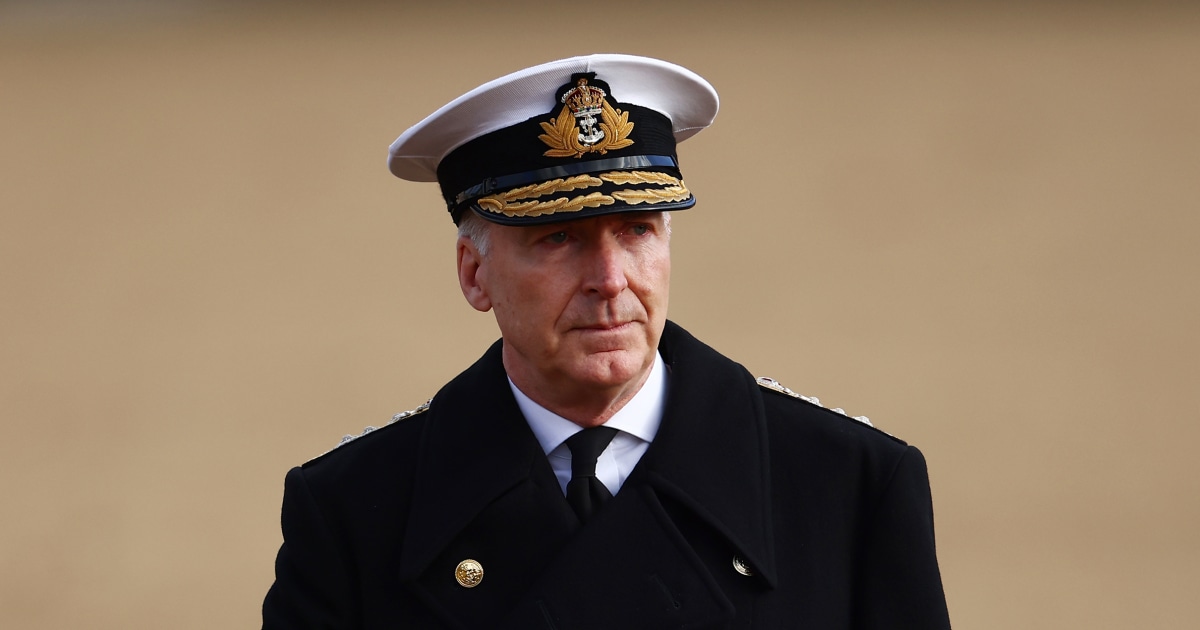LONDON — The world is entering a “third nuclear age,” the head of the British armed forces has warned, with world-ending weapons once again spreading globally and international agreements to control them collapsing.
Adm. Tony Radakin, chief of the defense staff in the United Kingdom, on Wednesday accused Russia of issuing “wild threats of tactical nuclear use” and “simulated attacks against NATO countries.”
Russian President Vladimir Putin has repeatedly threatened the United States and the West with nuclear retaliation over its support for Ukraine, where his forces have been fighting since their invasion almost three years ago.
But Kremlin saber-rattling was not the only reason for Radakin’s words of caution at a lecture at the Royal United Services Institute think tank in London.
He also cited China’s rapid development to become the world’s second fully-fledged nuclear competitor to the United States, alongside Russia. North Korea and Iran, meanwhile, are upping the ante, all set to the backdrop of collapsing nonproliferation agreements, which sought to reduce the risk posed by nuclear weapons after the Cold War, he said.
“The world has changed. Global power is shifting and a third nuclear age is upon us,” Radakin said. Describing this new era as “altogether more complex” than before, he said it is “defined by multiple and concurrent dilemmas, proliferating nuclear and disruptive technologies, and the almost total absence of the security architectures that went before.”
As Radakin defined it, the first nuclear age was during the Cold War, when the U.S. and Soviet Union amassed colossal arsenals and were “governed by the risk of uncontrollable escalation and the logic of deterrence.” The second age started after the fall of the Berlin Wall and was an era of “disarmament efforts and counter-proliferation,” as these nuclear powers expressed willingness to row back from this apocalyptic face-off, he said.
That era is over, he said, replaced by growing arsenals among established powers, development by newcomer upstarts and a backsliding of international agreements.
To be clear, the admiral said that “there is only a remote chance of a significant direct attack or invasion by Russia” against NATO countries.
Alex Younger, former head of Britain’s MI6 foreign intelligence agency, expressed a similar opinion on “The World” podcast with NBC News chief foreign correspondent Richard Engel and Yalda Hakim, lead world news presenter at NBC News’ British partner Sky News.
“I don’t think Putin is intent on firing a nuclear weapon at us,” Younger said, although he added it did not mean nuclear watchdogs are not alarmed at the current direction of travel.
The total number of nuclear weapons continues to gradually decline from the current number of around 12,000 worldwide, according to the Stockholm International Peace Research Institute (SIPRI), a leading organization tracking armaments around the world. But that is only because the U.S. and Russia have been dismantling retired warheads, it said.
There are 2,100 warheads “kept in a state of high operational alert” — around 100 more than last year, SIPRI said in its 2024 yearbook. As well as China’s “significant modernization and expansion,” arsenals are also growing or set to grow in India, Pakistan, North Korea and the U.K. itself, SIPRI said.
Meanwhile, “the entire six decade-long nuclear arms control enterprise is at risk of terminating,” it said.
Last year, Russia suspended its participation from New START, an agreement that sought to put verifiable limits on Washington’s and Moscow’s nuclear arsenals.
And in 2019, then-President Donald Trump withdrew from the Intermediate-Range Nuclear Forces, or INF, Treaty, accusing Russia of violating the agreement. And a year earlier, Trump withdrew from the Iran nuclear deal, which many experts say makes it easier for the theocratic state to build such a weapon.
Radakin, the British admiral, said he hoped the world would not have to witness the horrors of nuclear war and do what’s necessary to avoid it, namely “stiffen its resolve.”
“We need to sense the risk of tragedy to ensure we avoid it,” he said. “And that risk of tragedy is growing. The world is more dangerous. The challenges are greater.”

